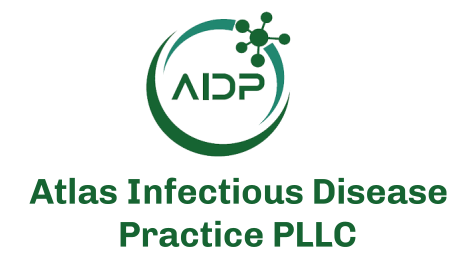In 2024, C difficile saw a lot of important developments, ranging from updates in vaccinations to studies looking at severity, prevention and recurrence.
Contagion covered stories on these developments and interviewed experts from major institutions, pharmaceutical companies, and patient advocacy groups who are working together to help these patients.
Here is a list of stories that resonated with our audience in 2024 in the area of C difficile.
Click the headlines to read more from these stories.
Two Years After its FDA Approval, Rebyota Continues to Show Efficacy and Safety
It has been 2 years this month since fecal microbiota, live – jslm (Rebyota) was FDA approved for the indication of recurrent Clostridioides difficile (C diff) treatment in individuals 18 years of age and older, following antibiotic treatment for recurrent C diff infection.
New data was released at this year’s ID Week showing its continued efficacy and safety 2 years after the approval. Ferring Pharmaceuticals announced results of its outpatient real-world study using Rebyota.
In one of the analysis, investigators reviewed the medical records of 64 adult patients…
Due to FDA Policy Change, Fecal Microbiota Transplants Are in a Tenuous Position
This past fall, there has been some legal limbo going on at the FDA as it pertains to deciding if the federal agency should restrict the nonprofit company, OpenBiome, from continuing to distribute its fecal products for use in fecal microbiota transplants (FMT). This procedure has been a life-saving treatment for both adult and pediatric patients suffering from fulminant Clostridioides difficile for several years.
Prior to this fall, the FDA had allowed the distribution of the company’s fecal products under enforcement discretion for many years.1 However, the FDA changed its position creating an uneasy, untenable position for the future of FMT—at least in the short term.
Without OpenBiome’s ability to distribute their product, many patients might not have immediate access to FMT, and this is not an ideal situation considering the severity of infection for patients with fulminant C diff, including the possibility…
mRNA Vaccine Shows Potential for C difficile Infections
Joseph Zackular, PhD, an assistant professor at the Children’s Hospital of Philadelphia and the University of Pennsylvania, is leading research on Clostridioides difficile (C difficile) and the development of an mRNA vaccine. His recent work has shown promise in reducing mortality and improving outcomes for infections caused by this bacterium.
In our recent interview, Zackular discussed how his team used animal models, including mice and non-human primates, to test the vaccine’s safety, immunogenicity, and efficacy. C difficile has long posed a major public health threat due to its ability to form spores that survive harsh environments, making treatment difficult. Zackular believes the mRNA vaccine could help address this…
Advocating for Better Regulatory Rules and Standard of Care for C difficile
Make no mistake; Maryann Webb is a fighter. She has battled both Clostridioides difficile (C diff) and breast cancer simultaneously. During her sickest time, she felt her organs shutting down, and she was getting her affairs in order because she thought she was going to die.
“I was just wasting away. I could feel myself dying…I really just didn’t know what was going on, but I knew that I was nearing the end of my life, so I carefully, without anyone noticing, I got rid of a lot of my possessions, so that my daughter and my husband wouldn’t have to deal with that,” Webb said.
In the midst of her severe infection, she also developed breast cancer and needed a double mastectomy.
After her surgery, her bout with C diff continued on…
Identifying Risk Factors for Reduced Vancomycin Susceptibility in Clostridioides difficile Infections
The association between reduced vancomycin (VAN) susceptibility in clinical Clostridioides difficile isolates and poor clinical outcomes is well established. Although, specific factors contributing to infections with these strains remain unclear. This study identified certain ribotypes (RTs), notably RT 027, as significant independent risk factors for reduced VAN susceptibility.
Multivariable analysis indicated that RT 027 was significantly associated with reduced VAN susceptibility, with an odds ratio (OR) of 13.4 (95% confidence interval (CI): 7.7–23.4; p < 0.0001). Ribotype 255 also showed a positive correlation (OR: 2.9; 95% CI: 1.4–6.1; p = 0.005), while ribotype 014-020 was more likely to be susceptible (OR: 0.41; 95% CI: 0.21–0.80; p = 0.0092). Notably, no specific patient or hospitalization factors predicted infections with reduced susceptibility strains.
In an exclusive conversation with Contagion, Taryn A. Eubank, PharmD, BCIDP, research assistant professor at the University of Houston College of Pharmacy, elaborated on these findings…
Insights and Implications on the Impact of Reduced Vancomycin Susceptibility in Clostridioides difficile
Epidemiological studies have indicated a decline in vancomycin susceptibility among clinical isolates of C difficile, leaving uncertainty regarding its effects on patient outcomes. The hypothesis suggests that reduced vancomycin susceptibility would correspond to lower rates of sustained clinical response (SCR). Diminished vancomycin susceptibility in C difficile correlated with reduced odds of achieving a 30-day SCR and lower rates of 14-day initial cure within the investigated patient cohort.
A significant proportion (34%; 102/300) of C difficile isolates exhibited diminished susceptibility to vancomycin, with Ribotype 027 being the most prevalent (77.4%; 41/53). Overall, 83% (249) of patients achieved a 30-day SCR. However, reduced vancomycin susceptibility correlated with lower rates of 30-day SCR (76%; 78/102) compared to vancomycin-susceptible strains (86%; 171/198; P = .031). Additionally, a notable reduction in…
VE303 Potential to Relief to Those Impacted by Recurrent Clostridioides difficile Infection
Vedanta Biosciences has initiated dosing for the Phase 3 RESTORATiVE303 clinical trial of VE303, a live biotherapeutic product aimed at preventing recurrent Clostridioides difficile infection (rCDI).
The primary objective of the RESTORATiVE303 study is to evaluate the safety and recurrence rate of CDI at Week 8 among participants who undergo a 14-day treatment with either VE303 or a matching placebo. This assessment remains consistent for both Stage 1 (rCDI) and Stage 2 (high-risk primary CDI).
In the trial, participants assigned to the VE303 group will consume 3 capsules of VE303 daily for 14 days following the completion of standard antibiotic treatment lasting between 10 to 21 days for the qualifying CDI episode. Conversely, those in the placebo group…
Real World Study of Recurrent Clostridioides difficile Therapy Demonstrates Efficacy, Safety
At this year’s ID Week 2024, Ferring Pharmaceuticals announced results of its outpatient real-world study using their Clostridioides difficile (C diff) therapy, Rebyota (fecal microbiota, live – jslm). This study reports the effectiveness of this therapy in this setting.
Rebyota is a live biotherapeutic product (LBP) that is a pre-packaged, single-dose 150 mL microbiota suspension for rectal administration consisting of a liquid mix of up to trillions of live microbes, including Bacteroides. Rebyota is delivered directly to the gut microbiome and is administered by a healthcare professional in 1 visit.
Recurrent C diff is an ongoing challenge for clinicians and their patients…
Assessing the Relationship Between C-diff Risk and Antibiotic Exposure
With surging COVID-19 cases, an ongoing H5N1 outbreak, and a global health emergency related to mpox, we’ve got a number of infectious diseases challenges to face. In truth, that’s just the tip of the iceberg. Of these public health threats, there are some that are frequently neglected, healthcare-associated infections, antimicrobial resistance, and Clostridioides difficile (C difficile).
C difficile in particular is one that has challenged healthcare infection prevention efforts and can be deeply impactful for patients. The Centers for Disease Control and Prevention (CDC) recently reported that in 2022, the incidence rates of C difficile infection (CDI) increased with age and rates were higher in women…
Oral Vancomycin Reduces CDI by 64% in Stem Cell Transplant Patients
A recent study has shown that oral vancomycin prophylaxis (OVP) significantly reduces the incidence of Clostridioides difficile infection (CDI) during hospitalization in autologous stem cell transplant (ASCT) recipients, without increasing the risk of infection after discharge. The study, conducted at a single institution, evaluated 254 ASCT patients between January 2012 and December 2021. Patients were divided into two groups: those who received OVP (125 mg twice daily) and those who did not. The primary outcome, the incidence of CDI during hospitalization, revealed a significantly lower CDI rate in the OVP group (4%) compared to the non-OVP group (11%), with a p-value of .03.
The secondary outcome, assessing CDI risk up to 180 days after discharge, found…






